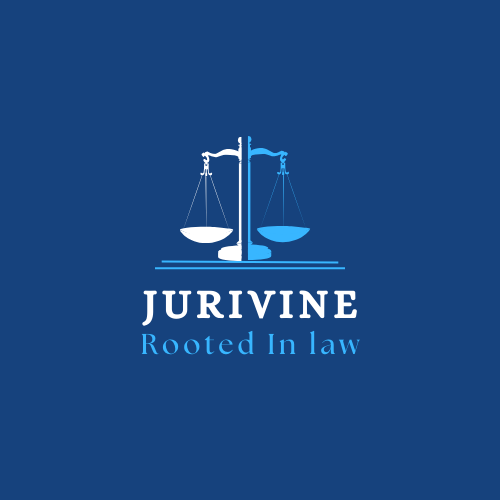Author: Dr. Poornima Eknath Surve, Principal, Shivajirao S. Jondhle Institute of Law & Reseach
Introduction
In August 2025, the Bombay High Court was confronted with a deeply disturbing revelation: an undertrial prisoner had languished in jail for seven years without being granted bail. This shocking fact illustrates a critical failure of India’s criminal justice system and highlights the inefficiency of legal aid services. Legal aid is not a form of charity but a constitutional guarantee intended to ensure equal access to justice. When an individual is deprived of liberty for years without fair
representation, it amounts to a gross violation of Articles 21 and 39A of the Constitution of India. This article analyses the constitutional and statutory framework for legal aid, examines the Bombay High Court’s observations, identifies systemic
challenges, and proposes reforms to bridge the gap between law in theory and law in practice.
Constitutional and Legal Framework of Legal Aid
The framers of the Indian Constitution envisaged justice as a foundational value.
Article 21 guarantees that no person shall be deprived of life or personal liberty except according to procedure established by law. Judicial interpretation has expanded this to include the right to fair trial and speedy justice.
Article 39A, inserted by the 42nd Amendment (1976), directs the State to ensure free legal aid and equal access to justice for all, particularly the poor and marginalized.
The Legal Services Authorities Act, 1987 operationalises this vision by creating a network of legal services authorities at the national, state, and district levels. Despite this robust framework, ground realities remain grim.
The Supreme Court has repeatedly emphasized the significance of legal aid:
In Hussainara Khatoon v State of Bihar, the Court held that the right to speedy trial is integral to Article 21.¹
In Khatri v State of Bihar, it observed that the State is constitutionally bound to provide free legal aid to every accused person.²
In M.H. Hoskot v State of Maharashtra, Justice Krishna Iyer declared that legal aid is a fundamental element of fair procedure.³
These rulings establish that denial of legal aid equals denial of constitutional rights.
The Bombay High Court Case: A Wake-Up Call
The Bombay High Court’s recent intervention was triggered when it came to light that an undertrial prisoner had remained incarcerated for seven years without bail.⁴ The Court expressed strong disapproval of such systemic apathy, noting failures at multiple levels:
Prison authorities failed to ensure that the prisoner’s right to legal representation was protected.
The legal aid machinery did not intervene effectively.
Trial courts did not act promptly to secure bail.
The High Court directed systemic reforms, including periodic audits of undertrial prisoners, better monitoring of legal aid lawyers, and accountability mechanisms for legal services authorities.
This case is a stark reminder that procedural lapses have devastating human consequences.
Challenges in Legal Aid Implementation
Despite constitutional and statutory commitments, several hurdles persist:
Lack of Awareness: Many undertrial prisoners are unaware of their right to free legal aid.
Inadequate Infrastructure: Legal aid cells in prisons are often understaffed and poorly resourced.
Quality of Representation: Empanelled legal aid lawyers are frequently overburdened, underpaid, and lack incentives, leading to perfunctory representation.
Judicial Delays: Bail hearings are postponed repeatedly, leaving undertrials languishing in prison.
Poor Monitoring: There is minimal oversight on whether legal aid lawyers are actually meeting their clients or filing necessary applications.
These challenges expose a gap between law on paper and justice in reality.
Comparative Perspectives
A comparative analysis reveals that other jurisdictions have adopted stronger frameworks
to ensure meaningful legal aid:
United Kingdom: The Legal Aid Agency provides a structured public defender system ensuring professional representation.
United States: The landmark case of Gideon v Wainwright (1963) held that the Sixth Amendment guarantees the right to legal counsel for defendants who cannot afford one.⁵ Public defenders play a crucial role in safeguarding this right.
South Africa: The Legal Aid South Africa (LASA) model emphasizes accountability, quality control, and accessible representation.
India can draw valuable lessons from these models by focusing on quality, accountability, and accessibility in its legal aid system.
Way Forward: Bridging the Gap
To prevent further miscarriages of justice, India must urgently address systemic flaws in its legal aid framework. Suggested reforms include:
Strengthening Legal Services Authorities: Adequate funding, staffing, and independence from political influence are essential.
Undertrial Prisoner Audits: Courts and prison authorities must conduct monthly audits to identify undertrials who are eligible for bail.
Digital Legal Aid Clinics: Setting up video-conferencing kiosks in prisons can connect prisoners with legal aid lawyers in real time.
Training and Incentives: Continuous professional training for legal aid lawyers and reasonable remuneration will improve quality of representation.
Accountability Mechanisms: Independent monitoring bodies should evaluate the performance of legal aid providers.
These measures can transform legal aid from a symbolic obligation into a living reality.
Conclusion
The Bombay High Court’s intervention in the case of an undertrial prisoner spending seven years in jail without bail has exposed the fragility of India’s legal aid system. Denial of effective legal aid amounts to denial of constitutional rights under Articles 21 and 39A.
Legal aid is not an act of benevolence—it is a constitutional mandate and a precondition of justice. Unless urgent reforms are undertaken, India risks perpetuating a cycle where the poor and marginalized remain trapped in endless incarceration.
As the Court rightly reminded us, justice delayed is justice denied. Strengthening legal aid is thus not merely an administrative necessity but a moral imperative for a democratic and constitutional State.
Refernces:
1. Hussainara Khatoon v State of Bihar (1980) 1 SCC 98.
2.Khatri v State of Bihar (1981) 1 SCC 627.
3.M.H. Hoskot v State of Maharashtra (1978) 3 SCC 544.
4.After man spends 7 years in jail sans bail, Bombay high court steps in to address
legal aid lapses’ Times of India (25 August 2025)
https://timesofindia.indiatimes.com/city/goa/after-man-spends-7-years-in-jail-sans-
bail-bombay-high-court-steps-in-to-address-legal-aid-
lapses/articleshow/123533702.cms accessed 27 August 2025.
5.Gideon v Wainwright 372 US 335 (1963).

Leave a Reply